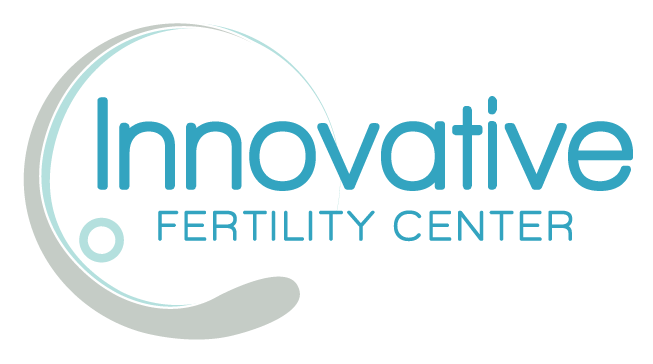Preimplantation Genetic Diagnosis & Screening
PGS and PGD to Help Couples Achieve Healthy Pregnancies
Today’s reproductive technologies advance your goal of having a successful IVF cycle, and ultimately a healthy newborn. One such breakthrough Dr. Mark Rispler and Dr. Joshua J. Berger may discuss with you is preimplantation genetic testing to detect single gene defects or chromosomal abnormalities (aneuploidy, translocations or other issues) in the embryonic stage before the embryo is transferred to imbed, or implant, in the uterus.
PGD and PGS test cells from embryos during IVF.
A Two-tiered Approach to Preimplantation Genetic Testing
1) PGS: A Reproductive Search Tool
Preimplantation Genetic Screening (PGS) enables fertility specialists to cast a wide net, searching for possible problems in the genetic code or chromosome structures.
Even without a known genetic illness in the family history, individuals benefit from PGS for several reasons. Our team often orders preimplantation genetic screening (PGS) for his fertility patients that have experienced recurrent miscarriages or repeated implantation failures with IVF. PGS is also beneficial for couples in which the woman is over 40 years of age.
Prior knowledge of chromosomal rearrangements, which may lead to miscarriage or birth defects (as in Trisomy 21, Down’s syndrome), gives us the opportunity to transfer an unaffected embryo with parental support.
2) PGD: Singling Out Genetic Disease
Preimplantation Genetic Diagnosis (PGD) becomes necessary when the doctor’s evaluation of preconception testing reveals that a couple carries a gene for a specific genetic disorder. The doctor compares PGD to a bloodhound tracking the scent for one specific genetic disease.
Some examples of genetic disease that PGD tests for include cystic fibrosis (CF), Huntington’s disease, sickle cell disease, muscular dystrophy, polycystic kidney, Tay-Sachs and hemophilia.
Enlisting PGD at Innovative Fertility Center
Patients may know that they are at risk for certain genetic disorders, either because one of the partners has the disease, or because one member of the couple is known to be a carrier for a disease. This situation is called a “single gene defect.”
Most of these patients will have completed preconception testing to identify the potential need for PGD.
Once the doctor confirms the presence of a single gene defect, it’s time to discuss fertility treatment options for subsequent in vitro fertilization (IVF) cycles.
PGD: A Proactive Approach to Successful Embryo Transfer
Our team will enlist the Innovative Fertility Center lab to perform PGD, ultimately offering couples the option of selecting unaffected, healthy embryos to transfer in an IVF cycle.
- Ovulation induction and egg retrieval proceed as usual during a round of IVF at Innovative Fertility Center.
- On Day 3 following the egg retrieval, each embryo is biopsied and a single cell (blastomere) is sent to the reference lab for evaluation. Remaining cells continue to divide without disturbing the embryo’s potential development.
- The reference lab sends a report of the evaluation of the cell from each embryo by day 5 so that unaffected embryos can be selected for transfer.
The combination of preconception testing with pre-implantation genetic screening or, if necessary, pre-implantation genetic diagnosis offers concerned parents peace of mind. PGS and PGD can reduce the chances for passing on inheritable diseases, or provide information that the doctor can use to proactively respond to recurrent miscarriage or failed IVF cycles.
We also utilize PGD for couples seeking gender selection options. Contact the Manhattan Beach office of Innovative Fertility Center for more information on the applications for preimplantation genetic testing.
- IUI & IVF
- Intrauterine Insemination, or IUI
- Sperm Prep for IUI
- Candidates for IVF
- IVF for Single Motherhood
- IVF After Tubal Ligation
- Should I Consider IVF?
- In Vitro Fertilization, IVF
- IVF Consultation
- IVF Process
- Egg Retrieval
- Embryo Transfer
- Intracytoplasmic Sperm Injection
- IVF Success Rates
- Preimplantation Genetic Diagnosis & Screening
- PGS
- PGT-M
- Failed IVF Cycles
- IUI & IVF
- Intrauterine Insemination, or IUI
- Sperm Prep for IUI
- Candidates for IVF
- IVF for Single Motherhood
- IVF After Tubal Ligation
- Should I Consider IVF?
- In Vitro Fertilization, IVF
- IVF Consultation
- IVF Process
- Egg Retrieval
- Embryo Transfer
- Intracytoplasmic Sperm Injection
- IVF Success Rates
- Preimplantation Genetic Diagnosis & Screening
- PGS
- PGT-M
- Failed IVF Cycles
